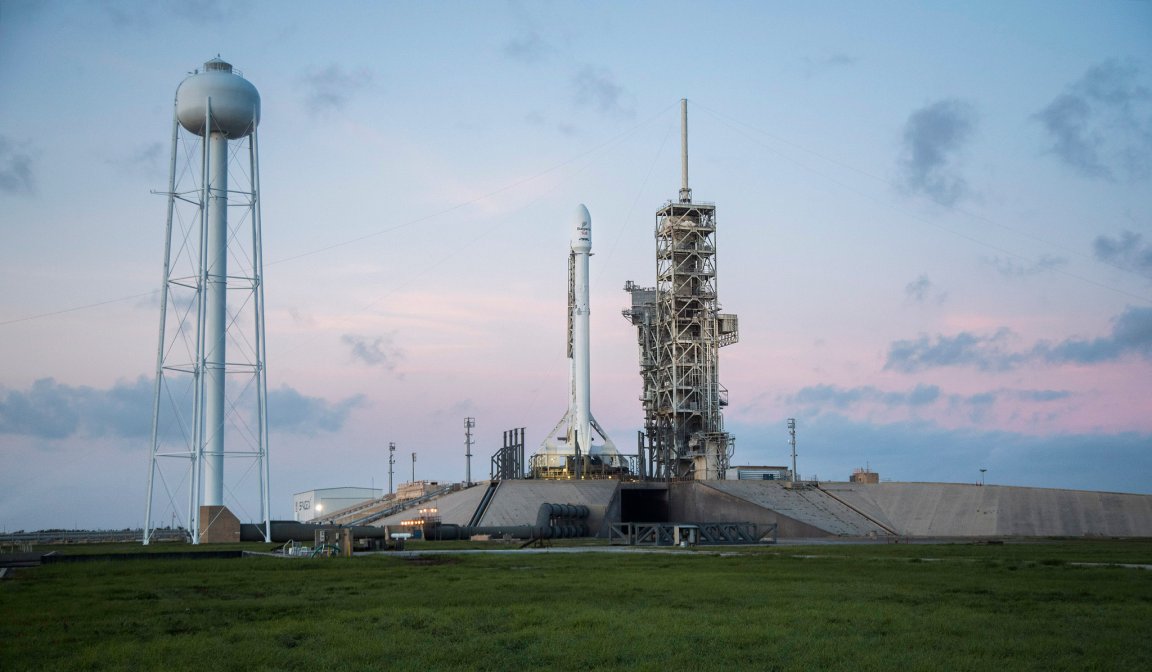
If you have late plans tonight, you may want to cancel them. Elon Musk just confirmed via Twitter that the Falcon 9 rocket will be flying from Florida this evening. You might want to brew up some coffee, while you’re at it (at least if you’re on the east coast of the US) — the two-hour launch window opens at 12:33 AM EST.
The Falcon 9 will be carrying the Hispasat 30W-6, the largest geostationary satellite SpaceX has ever flown. Coming in at more than 6,092 kilograms (13,400 pounds), this beast of a satellite is almost the size of a city bus, and it has a life expectancy of some fifteen years, according to Musk and a SpaceX press release.
For Spanish telecommunications company Hispasat, the launch is thrilling because it means the company can expand its broadband service coverage in Europe, Africa, and the Americas. Musk and his collaborators reach what is arguably an even more exciting milestone — SpaceX’s 50th launch. That’s especially remarkable because it happened in just seven years (Falcon 9’s first launch was in June 2010). For comparison, the Atlas V rocket, born out of a collaboration between Lockheed Martin and Boeing, took more than nine years to reach this milestone, and NASA’s space shuttle took more than 11 years, Ars Technica reports.
It’s not just notable that SpaceX is launching rockets so quickly — it’s doing them well. Out of the Falcon 9’s 50 missions, 48 have been successful. That’s a 96 percent success rate — a track record that would make any company proud.
Here’s a quick breakdown of SpaceX’s (few) missteps:
- Oct 8, 2012: a SpaceX rocket successfully delivers its primary payload into orbit but fails to deliver a secondary payload
- June 28, 2015: a SpaceX rocket exploded mid-flight and rained debris 0ver the Atlantic
- Sept 1, 2016: a SpaceX rocket exploded on a launchpad during pre-flight tests
- Jan 7, 2018: a SpaceX rocket successfully made it to orbit, but reports say the secret payload was lost
Of course, it’s possible that tonight’s launch will be added to the above list. But regardless of whether or not the launch is a success, SpaceX has already achieved its larger goal: revolutionizing spaceflight, ushering in the era of reusable rocketry, and spearheading the rise of a viable private space industry.
You can watch a livestream of tonight’s launch here.
Editor’s note: This article previously stated that the Hispasat launch was SpaceX’s 50th; however, it was the 50th specifically for the company’s Falcon 9 rocket. The text has been updated accordingly.